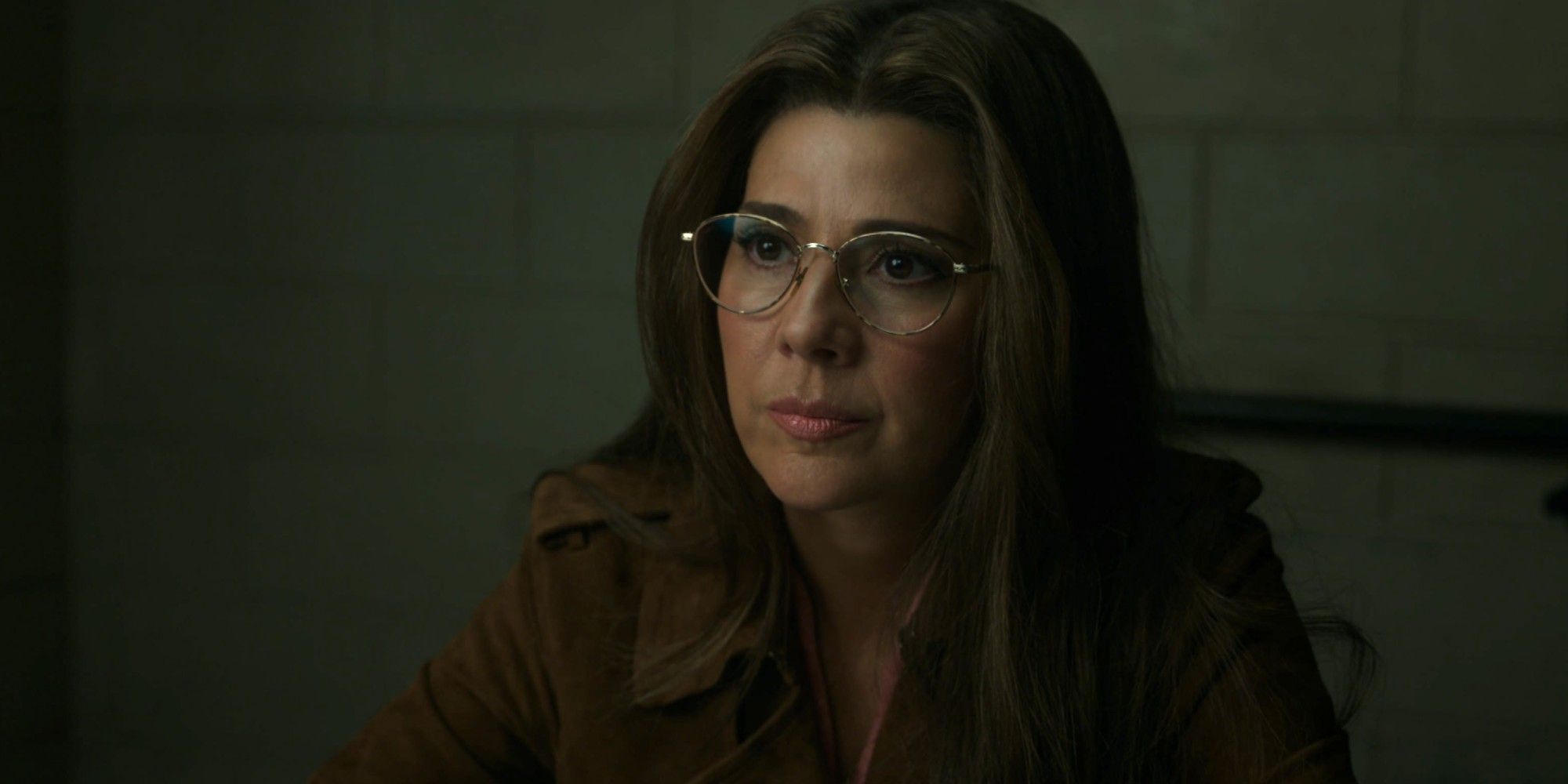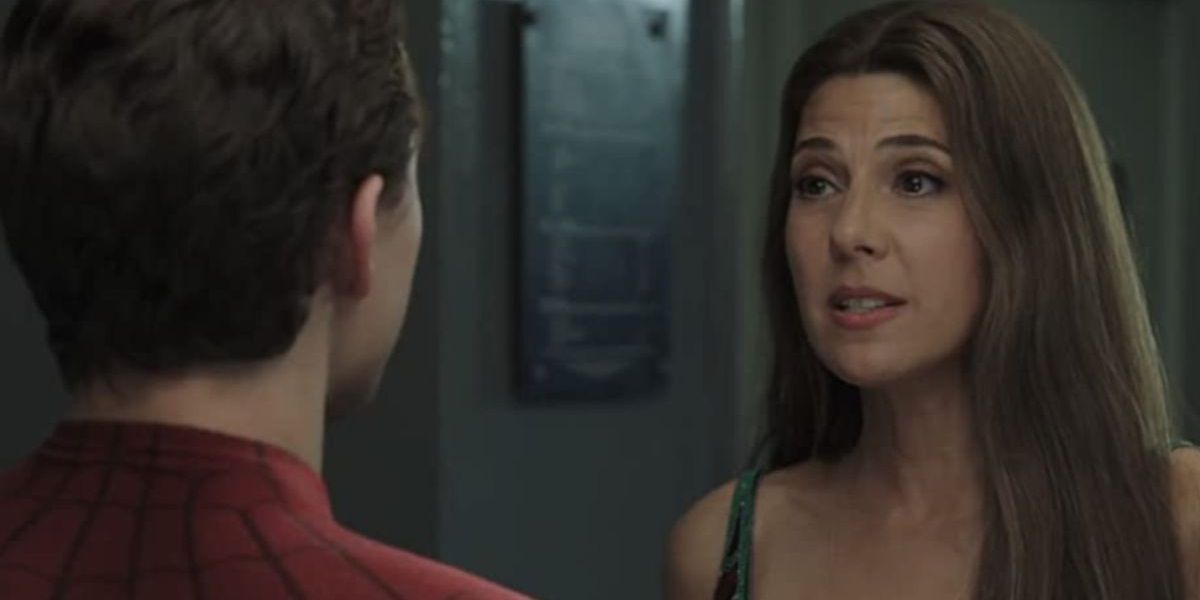Someone close to Peter Parker needed to die in Spider-Man: No Way Home for him to grow, but it shouldn't have been Aunt May. Spider-Man's third MCU adventure presented the hero with his greatest challenge yet. Following a botched spell from Doctor Strange to make the world forget Peter's identity, five villains from the multiverse were transported into the MCU. Despite his efforts to cure them, Spider-Man paid a great price for their arrival. The world was forced to forget him to prevent a multiversal crisis and his mother figure, May Parker, was killed by the Green Goblin.
SCREENRANT VIDEO OF THE DAY
May's demise was a heart-wrenching moment, made even more poignant by her delivering Spider-Man's signature "Great Power, Great Responsibility" line. Her death served as a life-changing moment for her nephew, shaping him into the more mature crime fighter seen at the end of the film. No Way Home's closing scene showed Peter living alone, devoid of any Stark tech or loved ones to lean on. The sequence laid the groundwork for exciting new storylines for Spider-Man 4 and opened the door for the MCU to explore a more comic-accurate, down-on-his-luck Peter Parker.
Spider-Man's No Way Home tragedies—particularly Aunt May's death—were necessary for the hero to evolve. However, though having someone close to him die was pivotal to produce that change, May should not have been the one to make the ultimate sacrifice. Her demise was one of the movie's most impactful sequences; yet, it also likely erased the possibility of her living up to the full potential of her already standout MCU characterization.
The MCU Finally Did Something New With Aunt May

Aunt May had a very specific portrayal in comics and live-action media prior to Marisa Tomei taking on the role in Captain America: Civil War. Comics typically depicted the character as an older lady in constant need of medical attention. That iteration carried over into Sam Raimi's Spider-Man trilogy and, to a lesser, extent into Marc Webb's The Amazing Spider-Man series. For the most part, she was used as a source of conflict for Peter, as he juggled looking after her while keeping up with his superhero and work duties. The MCU, on the other hand, flipped that on its head.
May was young, more involved in Peter's life, and didn't need to be constantly saved or helped by him. Instead, she was the one who helped him, guiding him through the trials and tribulations of high school's social environment and serving as his emotional pillar. Most importantly, she advised and supported him through his superhero endeavors. The MCU made Aunt May feel like an active parental figure for Peter. Having her as a healthy and physically strong adult also allowed for Spider-Man to truly feel like a child for the first time on screen, which contributed to Homecoming and Far From Home's lighthearted tones.
Her Death Means Interesting Potential Stories Can't Happen

The uniqueness of the MCU's Aunt May allowed for many enticing potential storylines beyond what was explored in the Homecoming trilogy. With her dead, though, such stories can no longer happen. Admittedly, May living through No Way Home would have likely meant being included in Doctor Strange's mind-wiping spell. But, as was briefly hinted at in the film, MJ seems to somewhat remember Peter, meaning May would have eventually remembered him as well, thus allowing her to continue being a part of his life. In fact, her remembering her nephew could have been the basis for an emotionally rich story in a future Spider-Man film.
One of the most compelling aspects of Marvel Studios' iteration of May Parker was her being an active part of Spider-Man's superhero activities. While initially shocked by the revelation of Peter's alter ego, she learned to be another "Person in the Chair" for him, as shown in Far From Home. It was a refreshing approach to the character that, had it continued, could have developed in interesting ways as Spider-Man grew into his role as a superhero and May learned the ropes of crime-fighting along with him. Furthermore, with Peter out of school and facing the struggles of adulthood, May would have likely served as a support system for him. She could have guided him through life as a young adult, something that in turn, would have probably led to touching moments akin to her teaching Peter to tie a tie in Homecoming.
Peter Parker Needed To Lose Someone To Grow — But It Should Have Been Happy

May's death was a pivotal step in Spider-Man's character evolution, and it served as a stark reminder of the stakes in Spider-Man: No Way Home. The impact of her demise makes it clear that someone close to the web-slinger needed to meet their end in the movie, but instead of May, the film should have killed off another meaningful figure in Peter's life: Happy Hogan. Peter and Happy's relationship has been one of the most interesting ones in the MCU. When the two met in Spider-Man: Homecoming, Happy didn't trust Parker nor think very highly of him. However, he grew to appreciate Peter for who he was, and a strong bond developed between them. Hogan became a mentor to Spider-Man, even staying by his side following Tony's death. By No Way Home, it was clear the two cared deeply for each other. As such, the MCU's Spider-Man trilogy established Happy as someone whose demise would greatly impact Peter. Admittedly, it would have certainly not been as painful for him as Aunt May's death, but it would have probably prompted the same growth, allowing Peter to grasp the price of being a superhero.
The difference between Happy and May is that the former's story could have reached its natural conclusion in Spider-Man: No Way Home. Happy's MCU career spans the entirety of the franchise, from 2008's Iron Man to Spider-Man's third standalone adventure. His seven feature-film appearances laid out a full arc for him, taking him from Tony Stark's no-nonsense bodyguard to a full-fledged character who aided in various superhero conflicts and ultimately lost his best friend. Him dying in No Way Home would have represented a fitting end to his journey. May, on the other hand, had a significant amount of room to develop in the MCU and much more to offer to Spider-Man's mythos. Aunt May's death in Spider-Man: No Way Home gave Peter the gravitas and emotional burden he lacked in prior MCU entries. Yet, such impact came at a cost: her passing also prevented a continued exploration of one of the most interesting versions of the character, and her absence will likely be felt throughout Peter's tenure in the Marvel Cinematic Universe.
